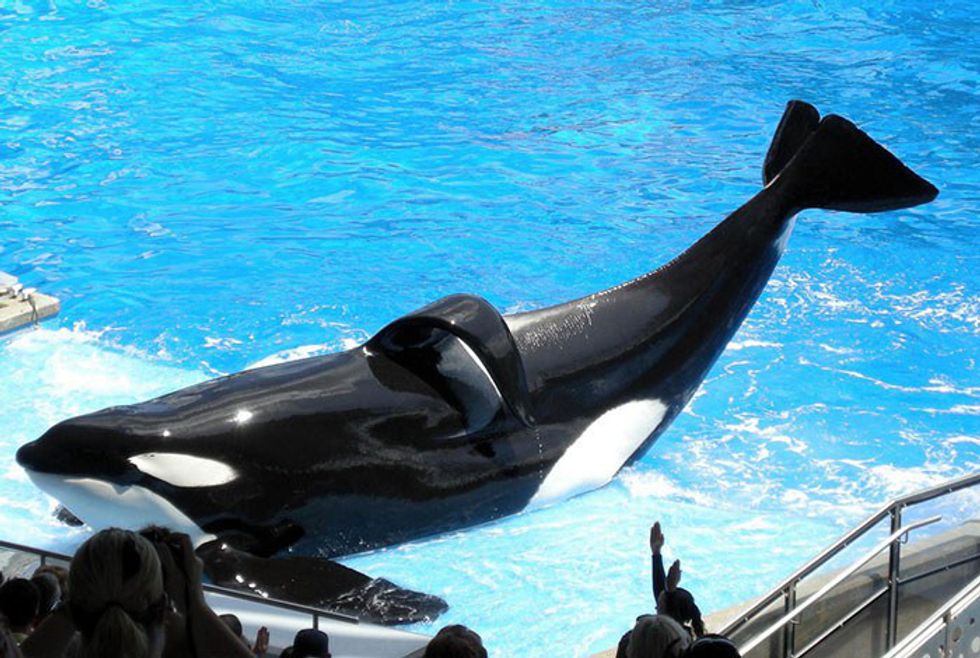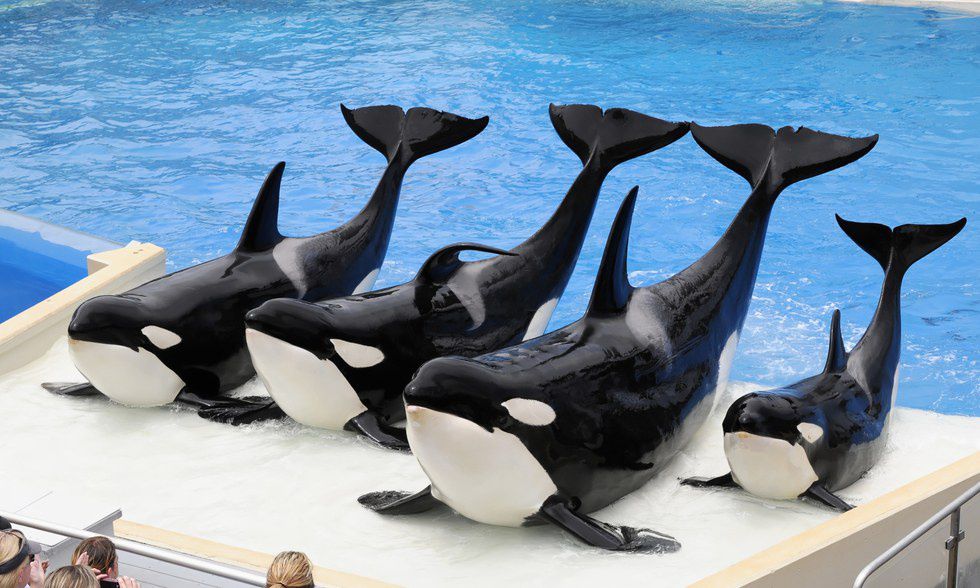Ah, SeaWorld: Whether you visited as a child, have seen photographs of its majestic wildlife, or really know nothing about it, it's safe to say you've heard the park's name more than a few times in the news during the past few years.
The controversy began back in 2013, when a documentary titled "Blackfish" was released at the Sundance Film Festival. The film surrounds a killer whale named Tilikum, who has been held captive at SeaWorld San Diego and has been at the center of many tragic incidents. After killing three of his trainers at the park, experts have found a direct link between the treatment of these whales and their violent behavior.
The film essentially accuses SeaWorld of mistreating Tilikum and other orcas who are forced to perform tricks in exchange for food and says that this mistreatment is why the mammals have so much aggression. It has also been reported that Tilikum suffers from depression and stress, resulting in a collapsed dorsal fin (shown below), and has been diagnosed with a fatal bacterial infection.
After the film reached the public, SeaWorld faced exponential backlash from animal rights groups, such as PETA and The Humane Society of America, and websites, like Seaworldofhurt.com, were launched in order to inform society of the unethical treatment. It has also been reported that the park has lost over $15 million since 2013.
Now, almost three years later, the SeaWorld franchise, founded in 1959, has announced it will begin to phase out the breeding of killer whales. Essentially, what this means is that the parks will continue to be home to their already existing orcas but will not allow them to reproduce. SeaWorld also announced that the existing whales will not be performing tricks for crowds any longer, but will be available for guests' viewing via "natural orca encounters"- as natural as a glass tank can be, anyway. The expectation of what the exhibit will look like is shown below.
As an avid animal lover myself, I completely support the changes SeaWorld is making. I remember visiting SeaWorld Orlando as a child and being mesmerized and awestruck by these monstrous, larger than life whales and thinking that nothing in life could top the experience. Now that I'm older, I am more aware of the cruelty these killer whales face. Many people may be asking "Why can't SeaWorld just let the whales go?" Because most of the orcas have been in captivity for most of their lives, once released into the ocean, they would die very quickly because they are not accustomed to having to compete for food in such a vast, unfamiliar environment. At the moment, I'm currently a bit skepitcal about the SeaWorld franchise as a whole, but it seems that they are trying to do right by the public and the orcas step by step.
The phasing out process will begin in SeaWorld San Diego in 2017 and will reach the Orlando park in 2019. Of the change, SeaWorld CEO, Joel Manby says, "We’ve helped make orcas among the most beloved marine mammals on the planet. As society’s understanding of orcas continues to change, SeaWorld is changing with it".
























